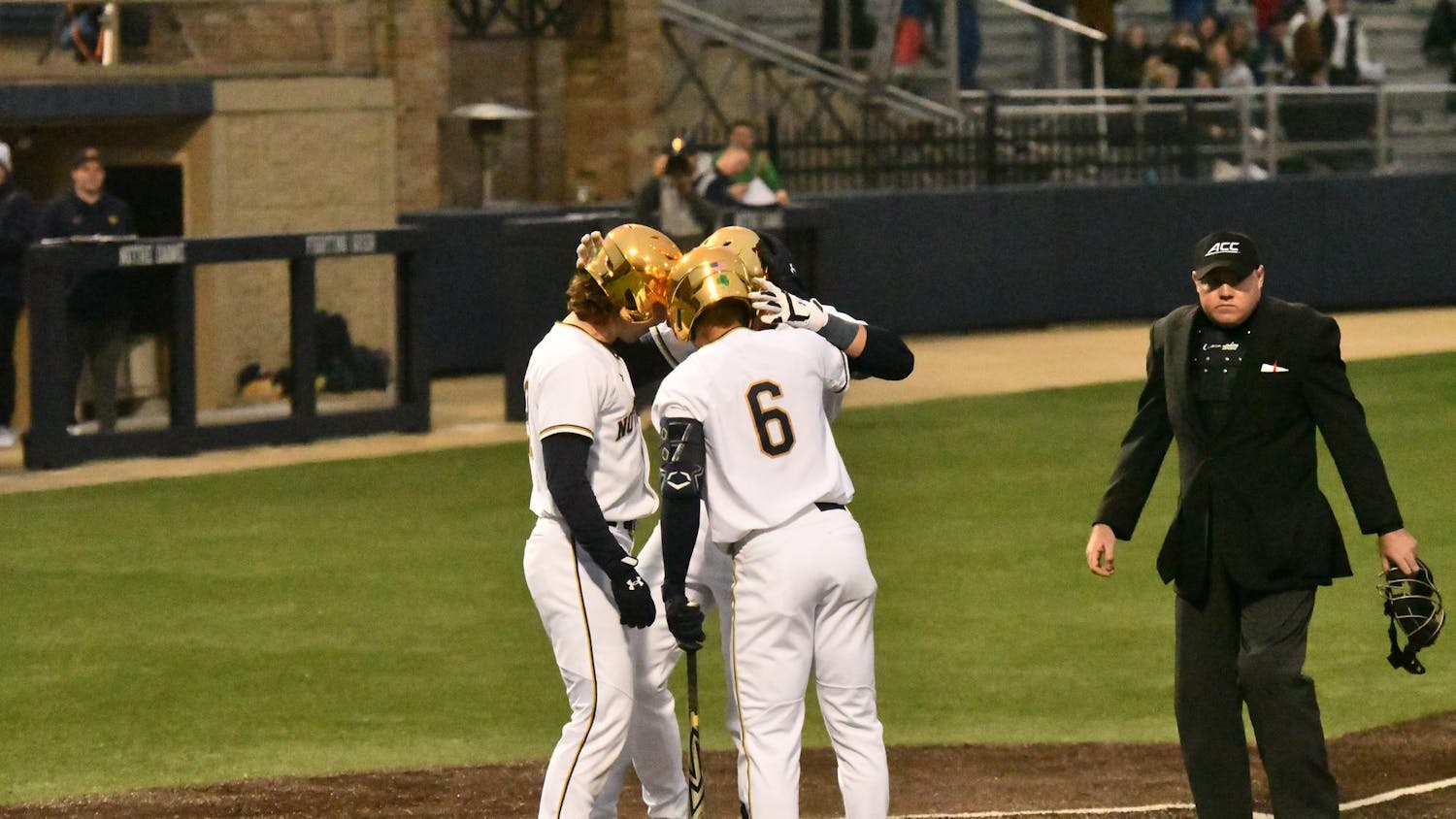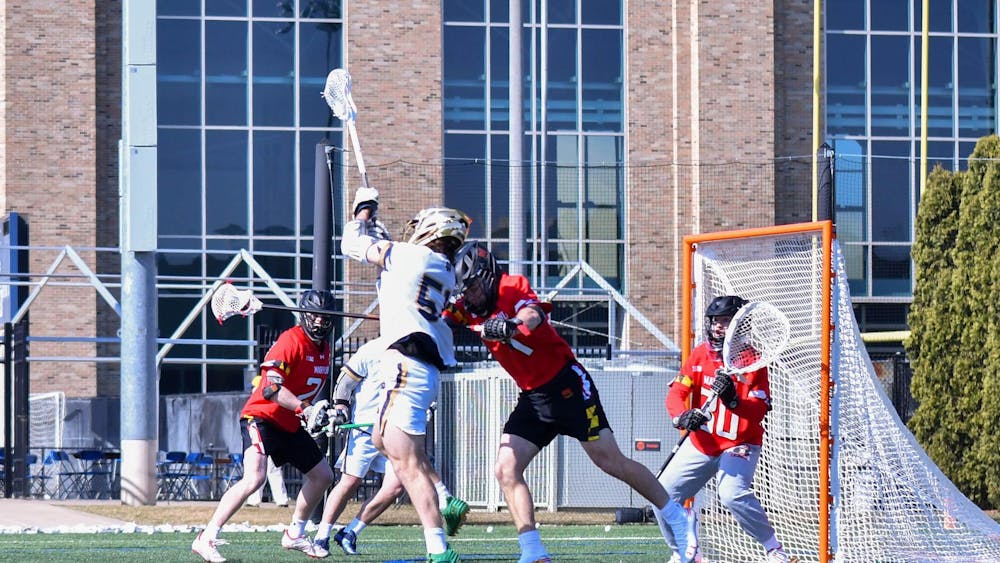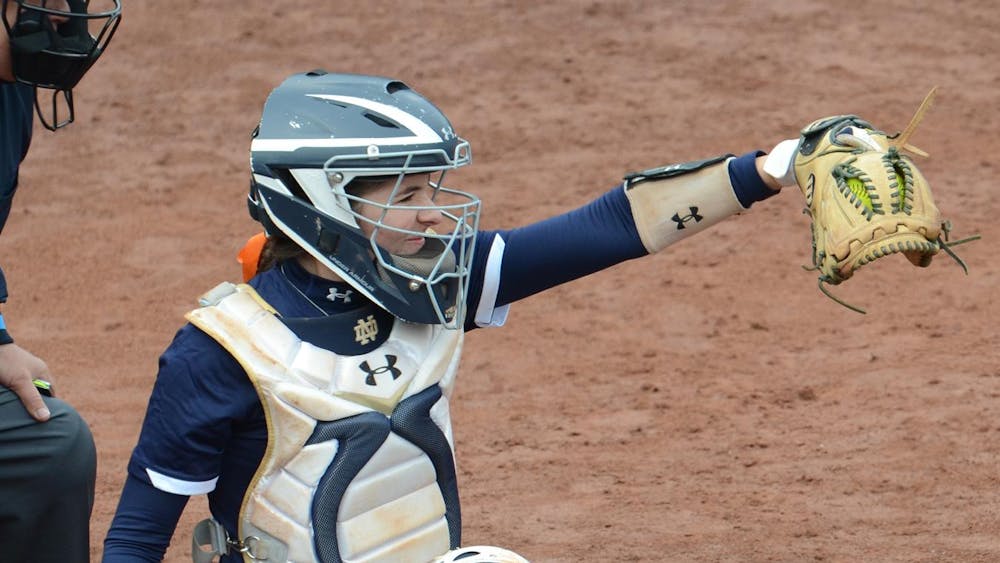This is the third in a 10-part series discussing the best rivalry in sports. In this installment, Samantha Zuba argues for U.S.-Soviet Union. Join the discussion on Twitter by using the #BestRivalry.
When the U.S. hockey team defeated the U.S.S.R. at the 1980 Olympics, the victory was so huge it was called “The Miracle on Ice,” and Disney even made a movie about it.
Now that’s what I call a rivalry.
It was a rivalry of international proportions and it gave the world one of the best sporting moments in history at those 1980 Olympics in Lake Placid, N.Y.
In case you haven’t seen the movie “Miracle,” or your parents haven’t recounted the game after telling you exactly where they sat when they watched it, the U.S. brought a team of college players against the mighty U.S.S.R., who had won the last four Olympic hockey gold medals. The Soviet Union started winning hockey golds at the 1964 Olympics and just would not stop. The Soviets had experience. They were bigger, stronger and everyone thought they were better — the best.
They defeated teams by lopsided scores, including 16-0 and 17-4 routs of Japan and the Netherlands, respectively, in group play on their way to the medal round. They also knocked off talented teams from Finland and Canada, and people began to whisper words like “unbeatable.” The U.S., for its part, defeated silver-medal-favorite Czechoslovakia 7-3.
The Americans were good. Were they great? No one knew. Could they beat the Soviet Union? Eh, probably not.
But both countries made it to the medal round, and they brought some history and natural rivalry with them. The Cold War made medal-counting a matter of national pride: a small cultural triumph for the victor, but nothing would compare to the drama of that medal-round match.
The young Americans defeated the Soviets 4-3 and stunned the world. As time wound down, Al Michaels made the unforgettable call: “Do you believe in miracles? Yes!” The Americans then defeated Finland in their final game to secure the gold medal.
World politics provided a dramatic setting for the game. The Cold War and the threat of mutual assured destruction had shaken the world’s confidence in peace. At the time, the U.S. was threatening to boycott the 1980 Summer Olympics in Moscow — which it later did — after the Soviet invasion of Afghanistan in 1979. Tensions would start to dissipate, thankfully, later in the decade and into the 1990s, but the end was not quite near during the Miracle game, so the rivalry was very real.
The quality of a rivalry should be judged on its history, intensity and the significance of its biggest moments. Although the U.S.-U.S.S.R. rivalry ended with the collapse of the Soviet Union, it still outstrips other sports rivalries in each category.
Both countries had a history of strong athletic competition as well as a record of cultural rivalry, which gave any contest between the two nations unparalleled consequence.
History, check.
National pride was always at stake, and people watched these countries compete as though the outcome would decide the political futures of their countries, particularly during the Miracle game.
Intensity, check.
The rivalry also produced many significant sporting moments, not just the Miracle on Ice. Track and field’s “Golden Age” flourished in large part because of the dual meet series that ran from 1958 through 1985 and pitted the U.S. and U.S.S.R. against one another in non-Olympic years.
In 1972, the two nations played one of the most controversial basketball games in history. Clock adjustments in the last three seconds of the gold medal game gave the Soviets three opportunities to inbound the ball until they were finally able to score the winning layup. The U.S. lost a formal protest over the outcome of the game and never claimed its silver medals.
Significant moments, check.
Thank goodness this rivalry and its accompanying animosity no longer exist, but its status as one of the best of all time cannot be overlooked. The drama remains unmatched.
Contact Samantha Zuba at szuba@nd.edu













